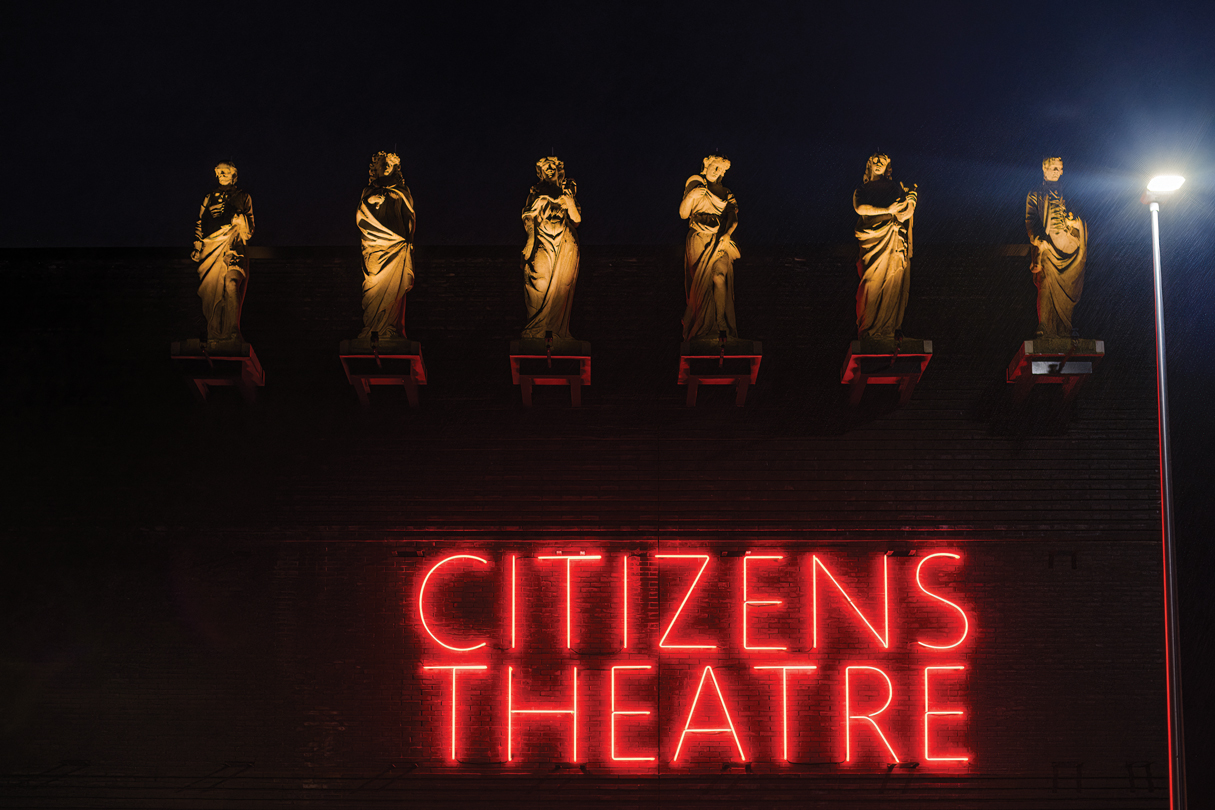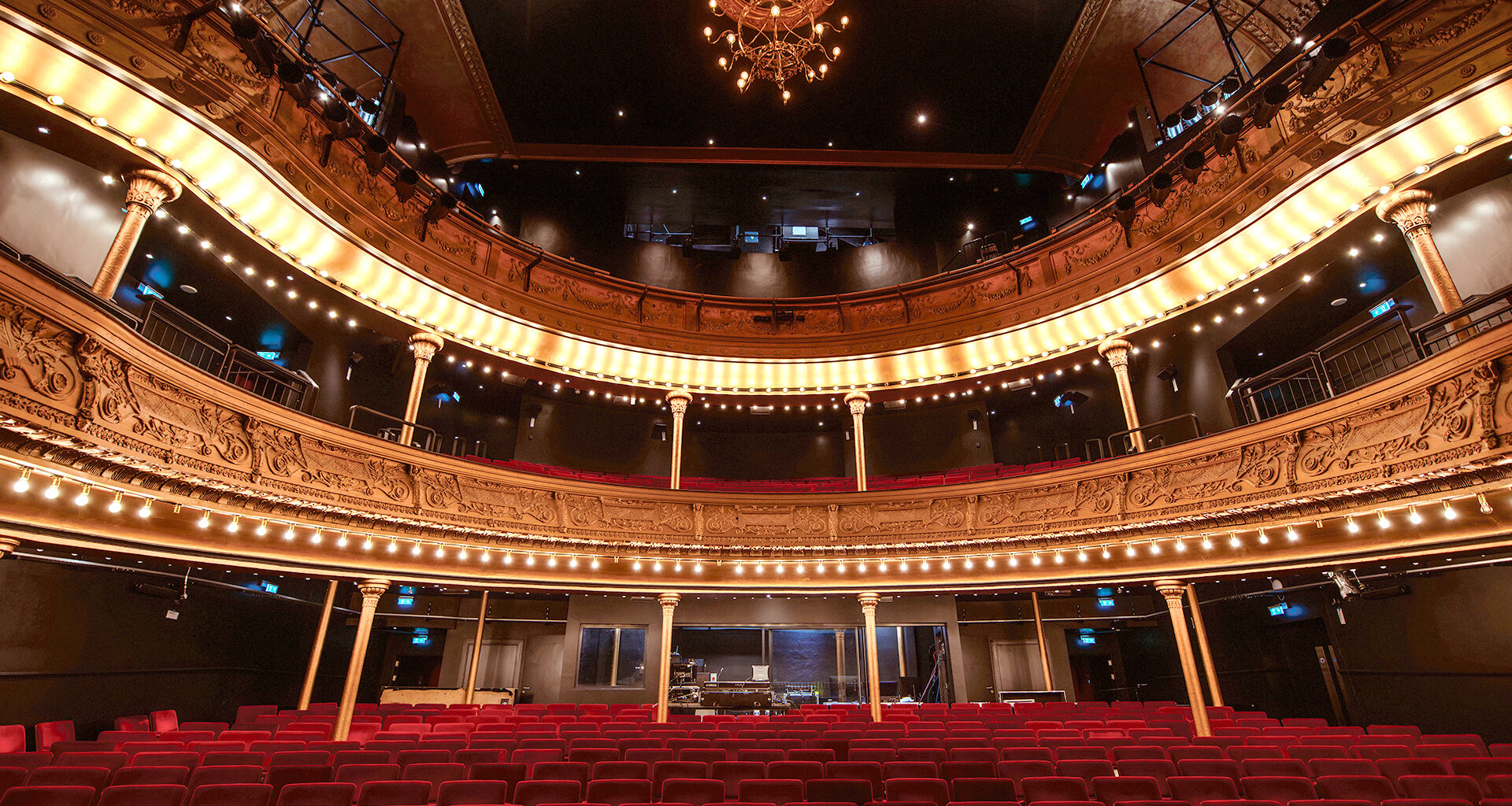Each now underpin the return of this Victorian theatre which has been at the cultural core of the Gorbals since, and whose importance to Glasgow, and Scotland, belies its modest capacity.
The Citizens reopened this month after seven years – four longer than planned – to the sight of outsized Greek Muses leading a giant parade through the streets, and the sound of a unanimous gasp of approval once the punters were allowed in for a peek.
Read more:
The multi-million redevelopment is a triumphant marrying of contemporary design with architectural legacy. Decades of cladding were removed to reveal huge sandstone archways, and the historic stonework of its gable end are given top billing by a glass roof.
Built in 1878 as Royal Princess Theatre, it became the Citizens in the mid-1940s. By the time artistic directors Robert David MacDonald, Philip Prowse and Giles Havergal (who died on the day of its reopening) were running the show from the late 1960s onwards, the place had developed a reputation as venue where impactful, meaningful – and often local – theatre could be found.
The names associated with the place are the stuff of legend. Albert Finney. Tim Roth. Rupert Everett. Pierce Brosnan. Alan Rickman. Billy Connolly.
Advertising helps fund Big Issue’s mission to end poverty
Hill said: “The Citz is unique partly due to its geographical situation. This gorgeous, previously dilapidated Victorian building, sitting in what was one of the most deprived areas of the country, was never afraid of saying, ‘We are going to create work for you as much as for the people in the west end of Glasgow.’ That’s such a part of who it is, and since then the community around it has really grown.”
Gorbals residents have long received a discount for their tickets. And although today’s cut-price deal of
a fiver is a few bob more than it was when the curtain went down on the “dodgy foundations, leaky roof and asbestos” it’s cheaper than an interval ice cream in London’s West End.
“A local primary school kid opened the doors and was the first person inside,” said Hill. “That sense of
community is crucial. We have to make sure that our activity, pricing and ticketing allow the community to feel that this theatre is theirs.”
 The revamped theatre frontage. Image: Mark Liddell
The revamped theatre frontage. Image: Mark Liddell
The theatre opened last week with Small Acts of Love, a play with music written by Frances Poet and Deacon Blue’s Ricky Ross about the relationships formed between Scottish and American communities in the wake of the 1988 bombing of Pan Am flight 103 over the Scottish Borders town of Lockerbie. Hill said: “It’s a really powerful, important piece about community, healing, how people deal with unexpected catastrophe in their ordinary lives. We chose it because we wanted to open with something brand new, something that was about Scotland, about communities. Those are values that are at the heart of the Citz.”
It will be followed by Douglas Maxwell’s Fringe First-winning comedy So Young and Dundee Rep’s touring production of The Glass Menagerie.
Hill’s excitement isn’t just for the programme he and his team are forming. Key to the fun of this new building are its windows (literally) into the past.
Advertising helps fund Big Issue’s mission to end poverty
He said: “I remember the first time I went to the Citz, I was shown around and could see the old stage machinery. I love the fact that we have kept that and that people can now go and see it.

“I don’t want us to be a museum, but I think the way we have shown off the heritage is really important. There’s something so special about knowing that people pulled these ropes for scenery to come up through the floor so long ago. There’s something extraordinary and also very human about it.
“I’ve always been inspired by its sense of theatricality, radicalism and daring even though I was living in the south of England. That’s always been an inspiration to me, and I hope always will be.”
Do you have a story to tell or opinions to share about this? Get in touch and tell us more.
Reader-funded since 1991 – Big Issue brings you trustworthy journalism that drives real change.
Every day, our journalists dig deeper, speaking up for those society overlooks.
Advertising helps fund Big Issue’s mission to end poverty
Could you help us keep doing this vital work? Support our journalism from £5 a month.
